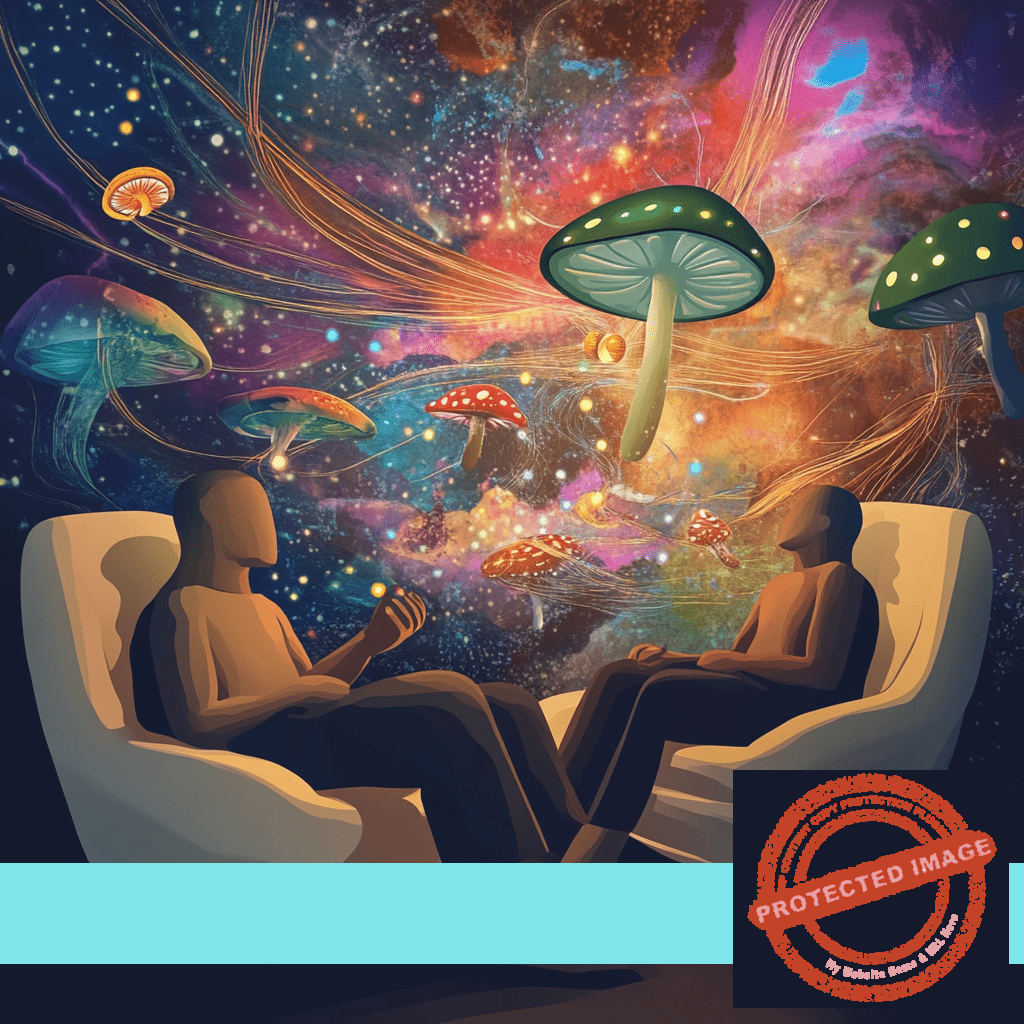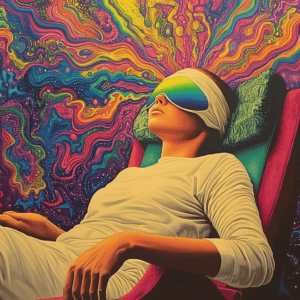
Hallucinogens and Their Potential in Modern Therapy
30 July 2025
Hallucinogens, often referred to as psychedelic substances, encompass a wide range of compounds that profoundly alter human consciousness and perception. These include natural substances like psilocybin, LSD, and mescaline, as well as synthetic compounds such as MDMA and ketamine. The rediscovery of these substances in modern scientific research has led to promising findings, especially in the field of mental health and psychotherapy.
What Are Hallucinogens?
Hallucinogens are substances that alter perception and often lead to heightened sensory experiences and intense emotional states. Their effects can vary greatly depending on the specific substance, dosage, and personal context. Hallucinogens are typically categorized into two main types:
- Classical hallucinogens like psilocybin and LSD influence serotonin receptors in the brain, often resulting in intense perceptual shifts and deep self-reflection.
- Dissociative hallucinogens such as ketamine and PCP affect glutamate activity and can induce a sense of detachment from the body and environment.

Therapeutic Applications of Hallucinogens
Depression and Anxiety Disorders
Hallucinogens—particularly psilocybin—have shown significant effectiveness in treating depression and anxiety. Researchers at Johns Hopkins University conducted clinical studies administering psilocybin to patients with treatment-resistant depression. Results demonstrated a marked reduction in symptoms, often lasting for weeks or even months. This effect is partially attributed to psilocybin’s impact on the Default Mode Network (DMN)—the brain network associated with self-image and self-referential thinking. By decreasing activity in this network, negative thought patterns can be interrupted, allowing emotional healing to take place.
Another promising application is the treatment of anxiety in patients with life-threatening illnesses. A study by the Heffter Research Institute used psilocybin to support cancer patients, resulting in profound emotional relief. Many participants reported a deep inner peace and improved quality of life, often lasting far beyond the psychedelic experience itself.
Post-Traumatic Stress Disorder (PTSD)
MDMA, commonly known as “Ecstasy,” is being increasingly studied for its potential in PTSD therapy. Clinical trials conducted by the Multidisciplinary Association for Psychedelic Studies (MAPS) show that MDMA helps patients access and reprocess traumatic memories in a supportive setting. The MDMA-assisted sessions led to significant symptom reduction. By lowering fear responses and enhancing trust, MDMA enables individuals to engage in therapeutic processes that might otherwise be overwhelming.
Addiction and Dependency Treatment
Another promising area is the treatment of addiction. Research indicates that substances like psilocybin and iboga—a hallucinogenic plant from Africa—can support recovery from alcohol and substance dependencies. Psilocybin can help disrupt ingrained behavioral and thought patterns by opening access to deeper levels of consciousness and offering new perspectives on self and addiction.
End-of-Life Care and Acceptance of Death
Hallucinogens such as psilocybin have also proven valuable in palliative care, particularly in helping patients confront death anxiety. Controlled trials involving terminal cancer patients reported profound experiences of acceptance and peace following psilocybin sessions. This form of therapy can ease existential fear and foster a sense of connection and meaning in the face of mortality.
Creativity and Problem Solving
Hallucinogens have also been shown to enhance creativity and cognitive flexibility. Studies suggest that psychedelics can activate novel neural pathways, enabling individuals to think beyond habitual mental patterns. This can lead to original ideas, enhanced intuition, and complex problem-solving. Artists, writers, and scientists often report that psychedelics help overcome creative blocks and inspire new ways of thinking. Interest is also growing in microdosing psychedelics within the business world as a potential tool to boost innovation and creative performance.
How Hallucinogens Affect the Brain
Hallucinogens primarily interact with the serotonin system, which plays a key role in regulating mood and emotional states. By binding to 5-HT2A receptors, they enhance communication between different brain regions. This increased neural connectivity supports open-minded thinking and the formation of new associations and insights.
Spirituality and Mystical Experiences
In addition to therapeutic benefits, the spiritual dimensions of psychedelics are gaining recognition. Many users report mystical experiences marked by profound unity, love, or transcendent insight. These experiences can be life-changing, often leading to a reassessment of values, relationships, and purpose. Research classifies such events as psychologically significant and notes their potential to increase compassion, inner peace, and life satisfaction. When facilitated in a professional ceremonial setting, the spiritual component can offer powerful healing and clarity.

Long-Term Effects and Neuroplasticity
One of the most compelling aspects of hallucinogens is their potential to promote neuroplasticity—the brain’s ability to reorganize itself and form new neural connections. Researchers at Imperial College London found that psilocybin stimulates neuroplastic changes, leading to greater cognitive flexibility. This can help individuals break out of rigid thought loops and develop creative, adaptive strategies for life challenges. In therapeutic contexts, this may translate into lasting changes in mindset and behavior.
Risks and Contraindications
Despite their potential, hallucinogens are not without risks:
- Psychiatric vulnerability: Individuals with a history of psychosis or bipolar disorder may be at risk of adverse effects or psychotic episodes.
- Cardiovascular strain: Hallucinogens can increase blood pressure and heart rate, posing a risk for those with heart conditions.
- Drug interactions: Combining psychedelics with SSRIs or psychiatric medications can lead to negative interactions and should be avoided.
The Role of Set and Setting
The concept of “set and setting” is critical in therapeutic psychedelic use.
- Set refers to the individual’s mindset, expectations, and intentions.
- Setting describes the physical and social environment where the experience takes place.
Research consistently shows that a supportive environment and professional guidance are essential for maximizing positive outcomes and minimizing the risk of challenging experiences.

Future Outlook and Societal Change
As interest in psychedelic research grows, societal attitudes are shifting. An increasing number of countries are opening up to the regulated therapeutic use of substances like psilocybin and MDMA. In the United States, the first licensed centers for psychedelic-assisted therapy have been approved, and Europe is slowly following suit. At the same time, there is a rising demand for education, training, and responsible integration of these approaches into mainstream healthcare.
In the future, psychedelics could become a vital addition to the treatment of mental illness—if applied responsibly, grounded in science, and embedded in safe, supportive frameworks.
Conclusion
Hallucinogens offer enormous potential to support well-being and mental health. From treating treatment-resistant depression and PTSD, to easing death anxiety, their applications are diverse and increasingly backed by science. Beyond therapy, creativity, problem-solving, and spiritual insight are also areas where psychedelics show significant promise.
Given the current momentum in research, policy, and public interest, psychedelics may soon take on an important role in holistic healthcare. With growing acceptance and regulated application, they open new pathways to support individuals—physically, emotionally, mentally, and spiritually. What remains essential is a responsible approach that harmonizes scientific evidence, therapeutic expertise, and a safe, ethical framework.
Psychedelics could thus become a powerful tool for healing and transformation in a modern, integrative society.
StudySSStudys / Sources:
Therapeutische Effekte von Psilocybin bei Depressionen
Psilocybin und palliative Begleitung
Suchttherapie mit Psychedelika
Psilocybin und Akzeptanz des Todes
https://www.ncbi.nlm.nih.gov/pmc
[1405.6466] Enhanced repertoire of brain dynamical states during the psychedelic experience
Psychedelic experiences and long-term spiritual growth: a systematic review | Current Psychology


